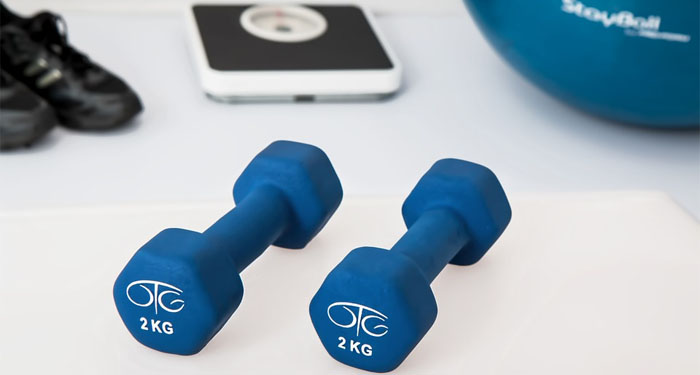Those looking for an exercise regimen they can stick to long term may find more success if they opt for one designed around the basic theory of cross training, says Madras physical therapist Brock Monger, co-owner of Apex Physical Therapy. The reason: cross training makes workouts more agreeable to both the body and the mind.
“While it may sound like a regimen that’s more extreme or for someone who’s already fit, cross training is nothing more than doing a variety of activities that challenge your body in different ways,” said Monger. “This cuts back on the wear and tear on your body and can prevent the onset of overuse injuries. But from a mental standpoint, it also makes working out more interesting and fun.”
According to Monger, planning workouts with variety – daily changes in movement, intensity, focus and resistance – reduces the risk of imbalances in strength and flexibility, breakdowns in muscles and joints, and overuse injuries. This allows a person to stick with a workout routine longer and with less down time.
“If you want your workouts to get boring very quickly, do the same workout each and every day,” Monger said. “You’ll find you’ll start lacking the daily motivation to work out, making it easier for your health goals to go by the wayside.”
Such is often the phenomenon behind New Year’s Resolutions, many of which have fizzled by this point in the year. According to a 2012 study published in the Journal of Clinical Psychology, 64 percent of those who make resolutions, such as those related to exercise and weight loss, continue successfully through January. Just 8 percent make it through the end of the year.
To help counter numbers such as these, Monger offers the following suggestions for incorporating cross training into your regular workout regimen:
Work Different Body Parts: Go into each workout by focusing on a single part or area of the body – legs one day, arms and shoulders the next, and perhaps core at end the week. Offset these days with cardio and perhaps fitness classes.
Take Exercise Classes: If you’re a member of a gym or athletic club, test your limits (and explore your options) by trying out a variety of exercise classes offered at the facility (e.g., spin class, Zumba, yoga, Pilates, etc.).
Make it Competitive: Competition strengthens our desire to work out and motivates us to push ourselves harder. So embrace competition, even if you’re simply competing with yourself. Keep a workout journal to track progress.
Leave the Gym: It’s good to join a gym, and it’s certainly good to regularly go to your gym, but also get outside once in a while. Breathe some fresh air, get out of the gym and try something new. Getting off the machines at the gym allows you to use your own balance and body weight for exercise.
Keep It Simple: Don’t over complicate your workout. If you try to do too much at once, or set your goals to high, the chance of failure increases. Set attainable goals, then reevaluate yourself and set new challenges as you progress.
Apex Physical Therapy LLC
Apex Physical Therapy, founded by the husband-and-wife team of Brock and Karin Monger – both physical therapists and certified strength and conditioning specialists – opened its doors in 2007 to care for Madras/Jefferson County families through preventative education and community focused rehabilitation services. The team at Apex Physical Therapy treats orthopedic, sports, auto and work-related injuries; provides post-surgical rehabilitation care; and offers education and rehabilitative programs related to spine disorders, athletic performance and general wellness. Visit: www.apexoregon.com for more information.





